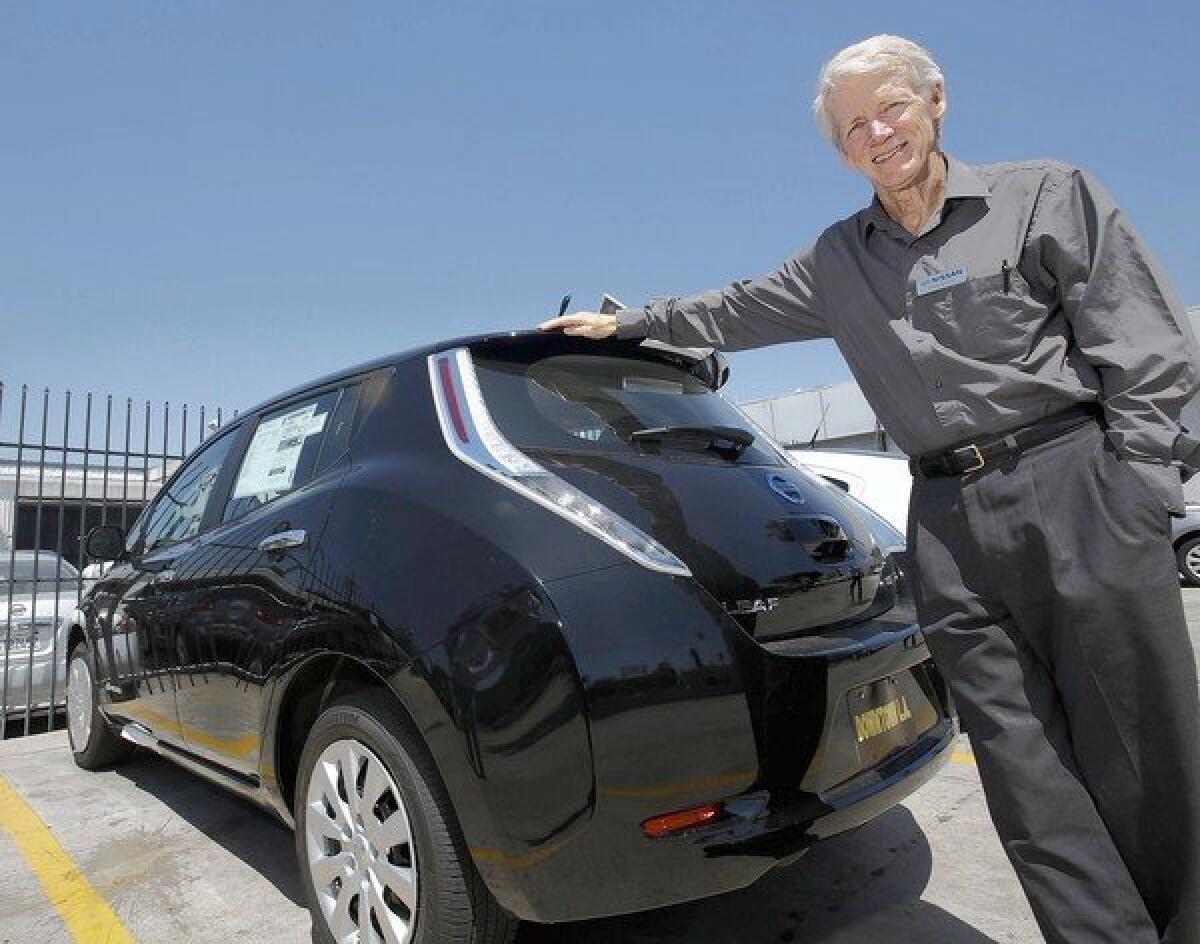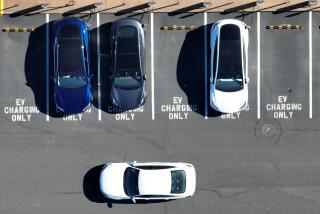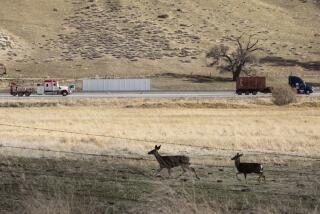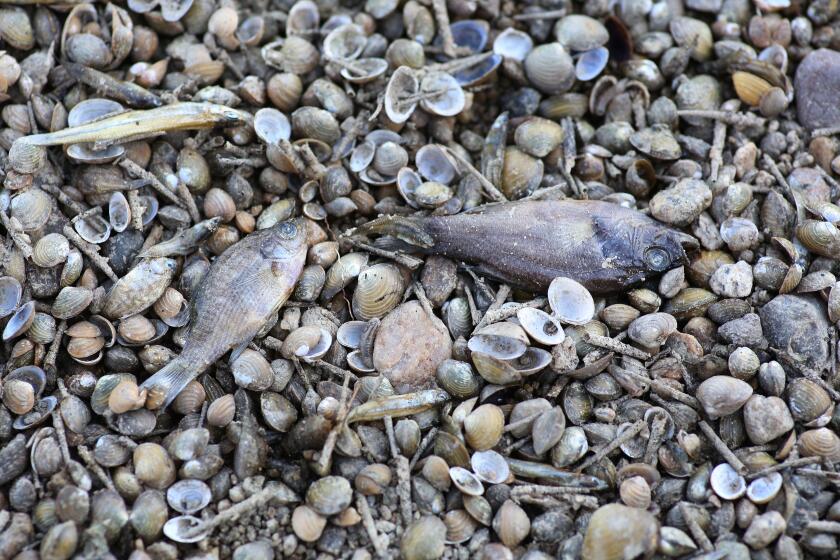Plug is pulled on electric car booster’s meeting with Obama

If history dwells at all on President Obama’s trip this week to California, it will probably be because of his Friday meeting in Rancho Mirage with President Xi Jinping of China. When the leaders of the globe’s two great powers meet, scribblers pay attention.
But for one middle-class constituent who almost landed on Obama’s agenda, the quick Western swing will be forever remembered for the meeting that did not happen, a subsequent tumble into the politico-media mulcher and what Paul Scott now hopes will be a mostly happy ending.
All Scott, a 60-year-old car salesman from Santa Monica, wanted was to promote the virtues of electric cars. He co-founded the nonprofit Plug In America and had a featured role in the 2006 documentary “Who Killed the Electric Car?”
So when an email invitation arrived for Friday’s Democratic National Committee fundraiser in Santa Monica — with a $32,400 donation opening the door to a special reception and a few minutes of face time with the president — Scott thought about it a little. He’d given a few hundred dollars before. This time, he decided to go all in.
It was an outsized play for a guy who earns $50,000 to $60,000 a year and doesn’t have a huge savings account. “This was the biggest thing I had ever done in my life,” said Scott, who simply had to tell the president how much more he could do to talk Americans out of their gas guzzlers and into electric vehicles.
To get maximum voltage out of his investment, the silver-haired salesman wrote a column and emailed it to dozens of news outlets. In “My Lunch with Obama,” he wrote about why he was willing to pay “a large percentage of my retirement savings” for the chance to ask the president a question or two.
Scott calculated that in little more than a decade, he had saved $16,000 by harnessing solar energy at his home and funneling some of it to his electric-powered Nissan Leaf, just like the ones he sells at a downtown dealership.
“It begs the question,” he wrote, “what would our planet and political process look like if millions of Americans stopped giving hundreds of billions to polluting industries and spent their savings instead on locally generated, renewable electricity and local goods and services?”
USA Today and several automotive publications picked up the story. That, in turn, provoked a second wave of interest from conservative commentators. Their focus was on the appearance that the Democrats were selling access to the president.
Conservative firebrand Michelle Malkin’s website headlined: “Electric car advocate pays $16k a minute to personally ask Obama to push carbon tax.” The story blew up online when it was picked up by the Drudge Report.
On Monday, Scott received another email from the Democratic National Committee, informing him he was no longer welcome at the luncheon and his $32,400 would be returned. “They insinuated that I did it to gain media attention,” Scott said.
On that count, he pleads guilty. “I support Democratic politicians and I certainly support the president; he is a fantastic president,” Scott said. “But I also have a message that is crucially important for our society and I have to get that message out any way I can.”
Officials at the DNC did not respond to a request for comment.
The party’s earlier email to potential donors said $10,000 would get a seat at Friday’s lunch, $16,200 a picture with the president and $32,400 a photo and “a very special one-hour round table discussion with the President after the luncheon.”
Kelly R. Olsen, a former Santa Monica City Council member, planned to make a video of his friend’s thoughts about his presidential encounter. Olsen helped move the city’s vehicle fleet to clean-burning fuels in the 1990s. He calls Scott “a human being who is dedicated and believes in something ... and was willing to put his money where his mouth is.”
Olsen thinks Scott got blackballed because he “pulled back the curtain” on the way politicians exchange access for contributions.
Scott does not want to dwell on the negative. He said it was never his intention to point out the unseemly side of money in politics. He is not a man who believes in half-measures. A onetime marathoner and self-taught gymnast, he spends long sessions on the rings and parallel bars next to the Santa Monica Pier.
He will sell only the electric Leaf and directs customers who want an internal-combustion vehicle to co-workers. “I won’t sell a gas car,” he said. “My goal in life is to get as many of them off the road as humanly possible.”
He rattles off petroleum industry statistics: $700 billion spent per year in America on oil products, an estimated $80 billion annually for military protection of oil assets and $10 billion in subsidies for the industry. That’s not counting increased healthcare costs from dirtier air or for environmental cleanups after oil spills, he adds.
He wants a tax on carbon — and thus gasoline — to cover those indirect societal costs. That’s one of the things he hoped to discuss with Obama. Another was the benefits of “hyper-miling,” the practice of efficiently accelerating and coasting that Scott says can improve fuel efficiency by as much as 30%.
“I am terribly disappointed to not see the president,” Scott said, “but the most important thing is getting the message out. We have got to move the needle on this issue.”
More to Read
Sign up for Essential California
The most important California stories and recommendations in your inbox every morning.
You may occasionally receive promotional content from the Los Angeles Times.










